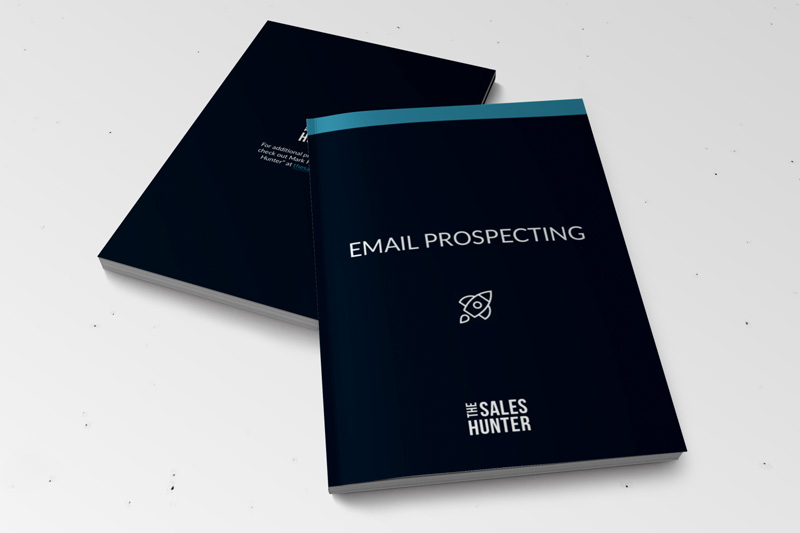 What is your customer really willing to give up their cash for? Do you know what your customer values?
What is your customer really willing to give up their cash for? Do you know what your customer values?
The truth is you need to sell to the customer’s value expectations, not to your value propositions. Let’s explore what this means.
We’ve all heard the rule of listening to what the customer has to say, and there’s not a salesperson who thinks they don’t listen to the customer.
Reality, however, is quite the opposite. I find time after time when I’m working with salespeople across any number of industries that the failure to listen is a huge issue.
Too many salespeople believe because they know the products they represent much better than the client, they know exactly what the customer will see as real value. It’s as if because we’re in sales we have been proven to be smarter than our customers and, therefore, we’re entitled to tell our customers what they want.
I find this so offensive for one reason – it’s the customer’s money, not ours! Yes, you as the salesperson are going to have a general indication of what a typical customer wants. However, when it comes to interacting with a specific customer, you can’t rely on a “general indication” of value.
The only way you are going to know what a customer will place value in is by asking them and getting them to tell you what they’re looking for. Sounds simple enough, and yet so many salespeople don’t do it.
If you don’t believe what I am saying, then let me share about the situation my wife found herself in while buying a car. The car she was looking at was an SUV with all the amenities of what people expect when looking for an SUV (4-wheel drive, ability to handle rugged winter driving, etc).
The salesperson continued to press my wife on the value of these features of the SUV. The problem was that my wife wasn’t particularly interested in those features. Yes, we wanted an SUV, but my wife — the primary driver of the vehicle — was looking for an amazing sound system and heated, comfortable seats.
I can’t tell you the number of salespeople who lost the sale because they failed to understand what my wife’s value expectations were with regard to the car.
We could easily have been sold on an SUV other than the one we bought, had the salesperson listened and put aside their pre-conceived notions of what a “typical buyer” of an SUV might be most interested in.
The most amazing thing about the process was the speed with which the salesperson would immediately start talking about cutting the price and making us a special deal. They were doing this solely based off of the hesitation my wife was showing with regards to the vehicle they were trying to get us to buy.
It’s as if each salesperson had the “cut the price” disease and they would come down with a major case of it if we didn’t show interest in buying fast enough.
I share this example so that you can see how easy it is to fall into the trap of thinking you know what the customer is looking for based on your assumptions or what other customers have told us. Too bad, because the only thing that happens is not only are sales lost, but others are done at a discount, both of which don’t need to happen.
What we can learn from all of this is really quite simple: Listen to what the customer is saying. Let them guide you to what they’re looking for. They will tell you what their needs are when you ask them the right questions.
This means not only do you need to ask the right questions, but you also need to hear what the customer is telling you and then ask them a follow-up question on what they just told you.
Asking the follow-up question is key, because the vast majority of time, the customer will share with you much better insights when you show interest and involvement in what they’re telling you. Taking the time to ask follow-up questions allows the customer to share more in-depth about what they want.
Plus, when you allow them to do the talking, they come away with the impression you’re not only a salesperson, but a human being who actually listens.
The amazing thing about taking the time to ask follow-up questions is it is incredibly easy to do (if you’ve been listening in the first place, that is). You simply need to ask them to explain more about what they just shared with you.
Once a person feels the other person is truly listening, it’s only natural for the quality of the conversation to become more real and engaging. By asking the follow-up questions, the salesperson will learn the customer’s value expectations. The salesperson can then finally work to close the sale to the customer’s expectations. This happens because the customer is saying in their own words exactly what they’re looking for.
When salespeople do a great job of listening to the customer and letting them drive the discussion, not only is there a very high likelihood the salesperson will close the sale, they will be able to do so at a higher margin. The customer sees more value in what they’re buying.
Now back to the example regarding the SUV we purchased. If you’re wondering if we paid more for the vehicle, that’s hard to tell. What I do know is my wife loves her car and the two biggest reasons she loves her car are the heated seats and the great sound system. For both of us, that’s all that counts. If we like the vehicle and it meets the needs we set out to have satisfied, then the price becomes secondary.
Want to really get at the heart of what your customer wants? Check out this video on how short questions get long answers!











